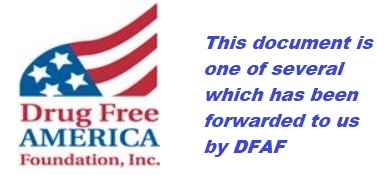Received from DFAF – 16 September 2025
The swift legalization of marijuana across the United States is impacting the rates of use and increasing the social acceptance among veterans 65 and older. A recent study is shining a light on this group of individuals whose struggle with marijuana use had largely flown under the radar.
The study included more than 4,500 Veterans Health Administration (VHA) patients nationwide, revealing a concerning picture of marijuana use and cannabis use disorder (CUD) in this population. Over half of respondents (57%) reported having used marijuana at some point in their lives, and 1 in 10 had used it within the past 30 days—a rate nearly double the national average for adults 65 years or older in the general population. Among these recent users, more than half were frequent users (defined as using on 20 or more days in the past month), and the majority (72%) consumed marijuana by smoking.
Perhaps most concerning was the prevalence of CUD. Among those who reported recent use:
- One-third (36.3%) met the criteria for CUD, including 10.9% with moderate CUD and 2.5% with severe disorder CUD.
The risks were even higher among those who consumed marijuana through smoking or vaping, those who reported anxiety symptoms, and those with functional impairments in daily activities. Veterans aged 65–75 were also more likely to meet criteria for CUD compared to those over 76, and risk increased among individuals who used other substances or faced economic hardship.
Geography mattered as well: veterans living in states with legal recreational marijuana use were more than twice as likely to report use compared to those in non-legal states. In contrast, living in a medical-only state did not significantly increase odds of use—suggesting that broader legalization may be a key driver of accessibility and behavior.
The findings highlight the need for veterans to understand the risks associated with use and to receive screening for CUD, which could help identify problematic use early and connect patients with evidence-based treatment.
Source: Drug Free America Foundation | 333 3rd Ave N Suite 200 | St. Petersburg, FL 33701 US

